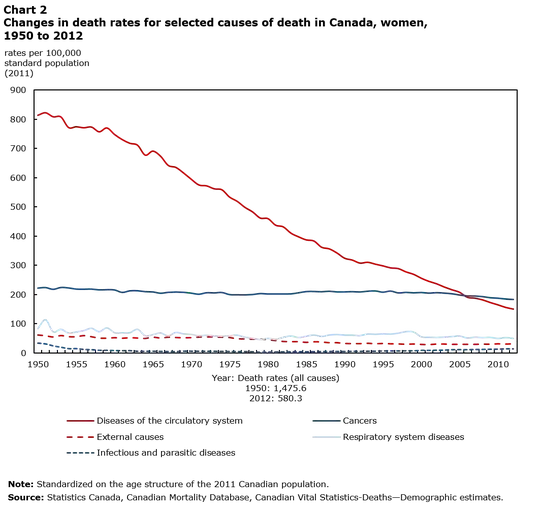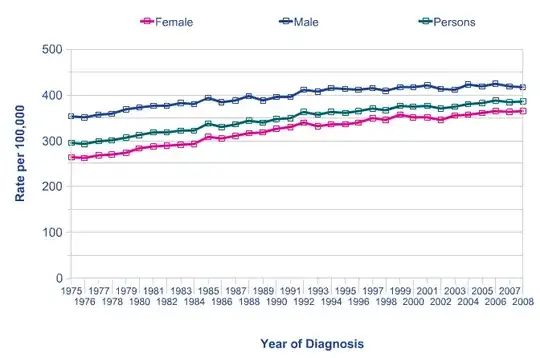It is nearly 50 years since Rachel Carson's Silent Spring was published where she popularised a belief that we are all being poisoned by artificial chemicals.
For the first time in the history of the world, every human being is now subjected to contact with dangerous chemicals, from the moment of conception until death.
She popularised the idea that we are suffering an epidemic of cancer. The idea has not gone away. Some randomly selected modern comment illustrates the currency of the idea. A 2008 opinion article in the New York Times proposed that "we can stop this epidemic of cancer". The London Evening Standard reports "Modern living to blame for cancer epidemic". A quick Google search will reveal the ubiquity of the assumption that we are faced with an epidemic (though there is some disagreement on the cause).
But not everyone agrees. This piece from Reason.com asks "what cancer epidemic?" and quotes an ACS report:
Overall cancer incidence and death rates have continued to decrease in men and women since the early 1990s, and the decline in overall cancer mortality has been greater in recent years...
So the common assumption is that there is an epidemic. But some solid figures don't seem to support the idea. One reason might be confusion around the statistics (for example failing to adjust for age or smoking). Who is right?
Just to be clear about the question and to avoid some possible distractions, the question is not about causes of cancer, just rates. Further, the specific question is whether cancer rates adjusted to exclude smoking (a major contributor) and to correct for age are growing significantly.



politicallygrammatically incorrect. – Mateen Ulhaq Dec 15 '11 at 03:48